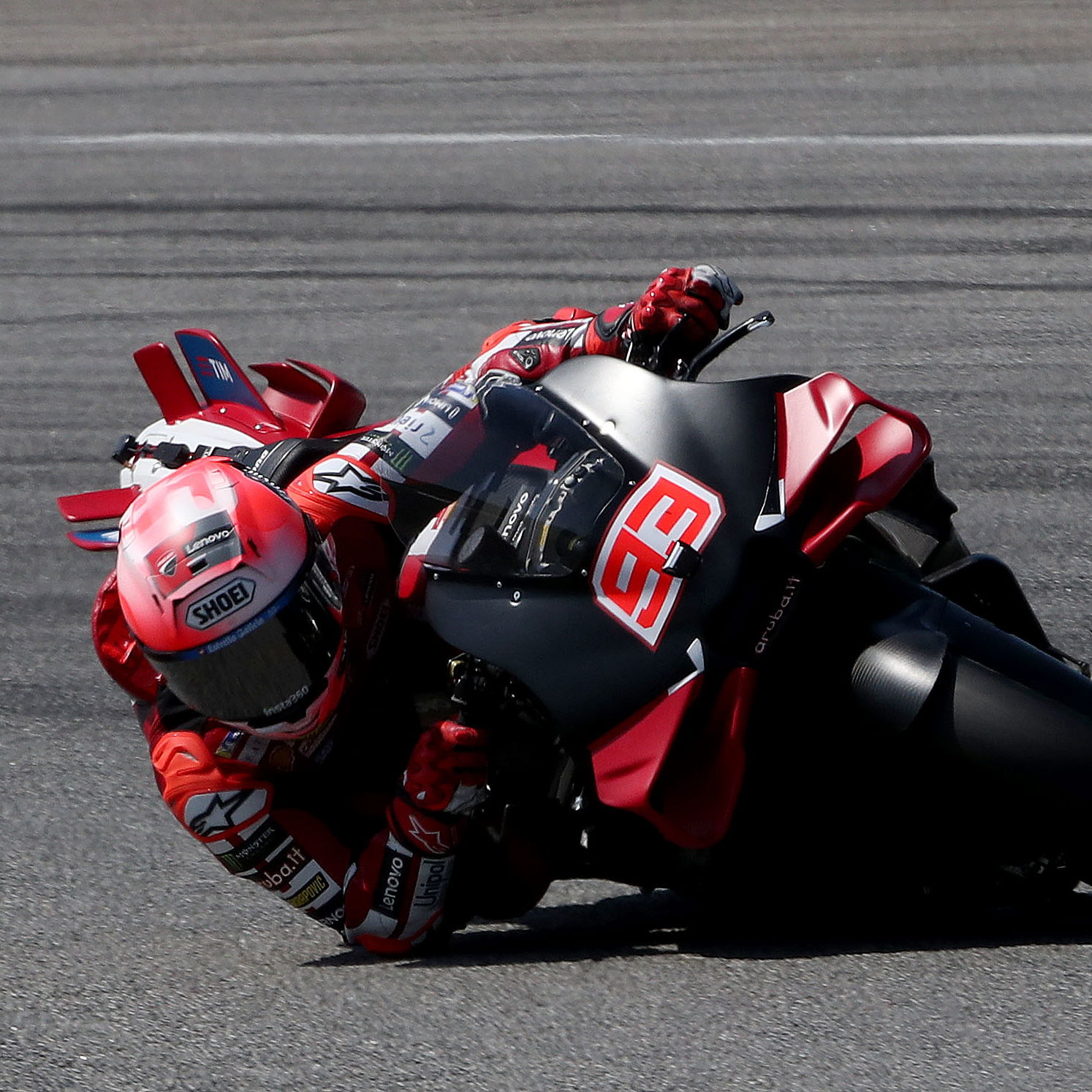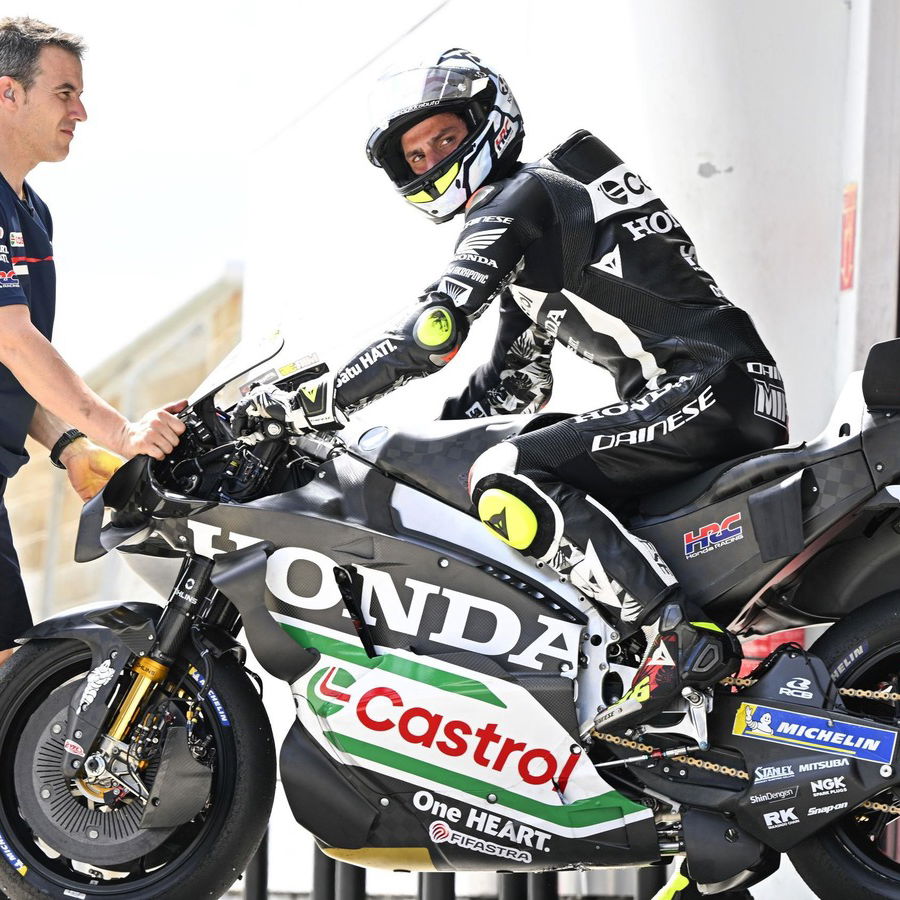Why Marc Marquez ‘closing the circle’ has ended MotoGP’s GOAT debate
Marc Marquez’s seventh MotoGP world title and ninth in total draws him level with Valentino Rossi, reigniting the GOAT debate between the two bitter rivals. But how Marquez bounced back from five years of hell, risked his career, and came out more dominant than ever has - in Lewis Duncan’s opinion - ended the debate for good…

Marc Marquez once told me during a magazine interview at the end of 2022, months after a fourth major operation on the arm he badly broke two years earlier, that “my mind is only on coming back to the top with Honda. Then, of course, if I cannot because I feel like I don’t have the tools, I will try to find the best for me…it’s my dream to stay with Honda. But my biggest dream is to win championships”.
To achieve the latter, he had to forgo his wish to remain a Honda rider. That decision came just under a year later, as Honda’s uncompetitive RC213V beat Marquez into submission. After a fifth crash of that year’s German Grand Prix weekend, the Marquez of old looked like he would never be seen again.
Thoughts of retirement had already been swirling in his head and a last throw of the dice was made a few months later when he announced - days after his final Honda podium at the Japanese Grand Prix - that he would be quitting his lucrative HRC contract a year early to join Gresini on a 2023-spec Ducati.
The aim was to rediscover his love for racing. The cost was leaving behind almost his entire Honda family, with whom he’d been since his debut in 2013 (crew chief Santi Hernandez had been with him even longer than that) and who stood alongside him in his run of six titles in seven years up to 2019. The risk was the premature end to a career already hanging by a thread.
On Thursday ahead of the Japanese Grand Prix, Marquez referred to his time with Ducati as his “second life”, with the 2025 title him “closing the circle” on five years that will ultimately come to define his MotoGP career.
Marquez badly broke his right arm when at the peak of his powers in 2020. His own inability at the time to avert risk led to him trying return too early, leading to a second operation and then a third to clear an infection in the surgery site that had dramatically slowed his recovery.
He won three grands prix in 2021, but did so with a right arm over 30 degrees out of rotation. The impact it was having on him was not just physical, but mental. A fourth major operation followed in 2022 to correct this, but even that was never a guarantee. That's not to mention the two bouts of diplopia he faced in 2021 and 2022 - something that risked his career in 2011.
Most would have quit, or never come anywhere near their full potential again. Yet, somehow, Marquez only seems to have elevated himself to a level greater than that of his pre-injury days, better than that of the rider who won the 2019 world title with a gap of 151 points and 12 race victories.
And he has done so on a Ducati that, while by no means bad, isn’t the world beater it has been in previous years. Double world champion team-mate Pecco Bagnaia’s struggles can attest to this. Yet, Marquez has scored 11 grands prix wins, 14 sprint victories, 10 37-point weekends, and taken over 85% of the total points available up to this point in the standings.
Bagnaia commented pre-weekend that 2025 has effectively been a season “without rivals” for Marquez because he has been in a league of his own. But how can anyone hope to beat a rider in the form that he is currently in?
Is this sport’s greatest comeback story?
There is no skirting around this: as Marc Marquez begins the celebrations of his ninth grand prix title, there was the very real possibility that he may not even have been on the grid to begin with in 2025.
The gamble to go to Gresini required Ducati to soften its stance on having Marquez ride one of its bikes. Gigi Dall’Igna admitted literally hours before the Spaniard was due to ride one of his bikes for the first time in Valencia at the post-2023 season test that he didn’t want this to happen initially.
That cold November day almost instantly convinced the world that Marquez was back and he would be a force to be reckoned with in 2024. He was always cautious of predicting too much. Winning wasn’t the point. He didn’t exactly have the tools to be doing so, either, given the spec of GP23 he was on.
Eventually, he would win again, at Aragon in early September 2024. He would score three victories in total to finish third in the standings. From early on in the campaign, it was evident he had the capability to do so as the other GP23 runners struggled. And such was the restoration in power of the Marquez brand, he was able to strong arm Ducati to cast eventual champion Jorge Martin aside - as well as the Pramac squad - to give him a factory seat for 2025.
Ducati has now been fully vindicated. But if Marquez hadn’t have been as competitive as he was from the off, and couldn’t find the form that would get him back to the podium regularly, that would likely have been it for his career.
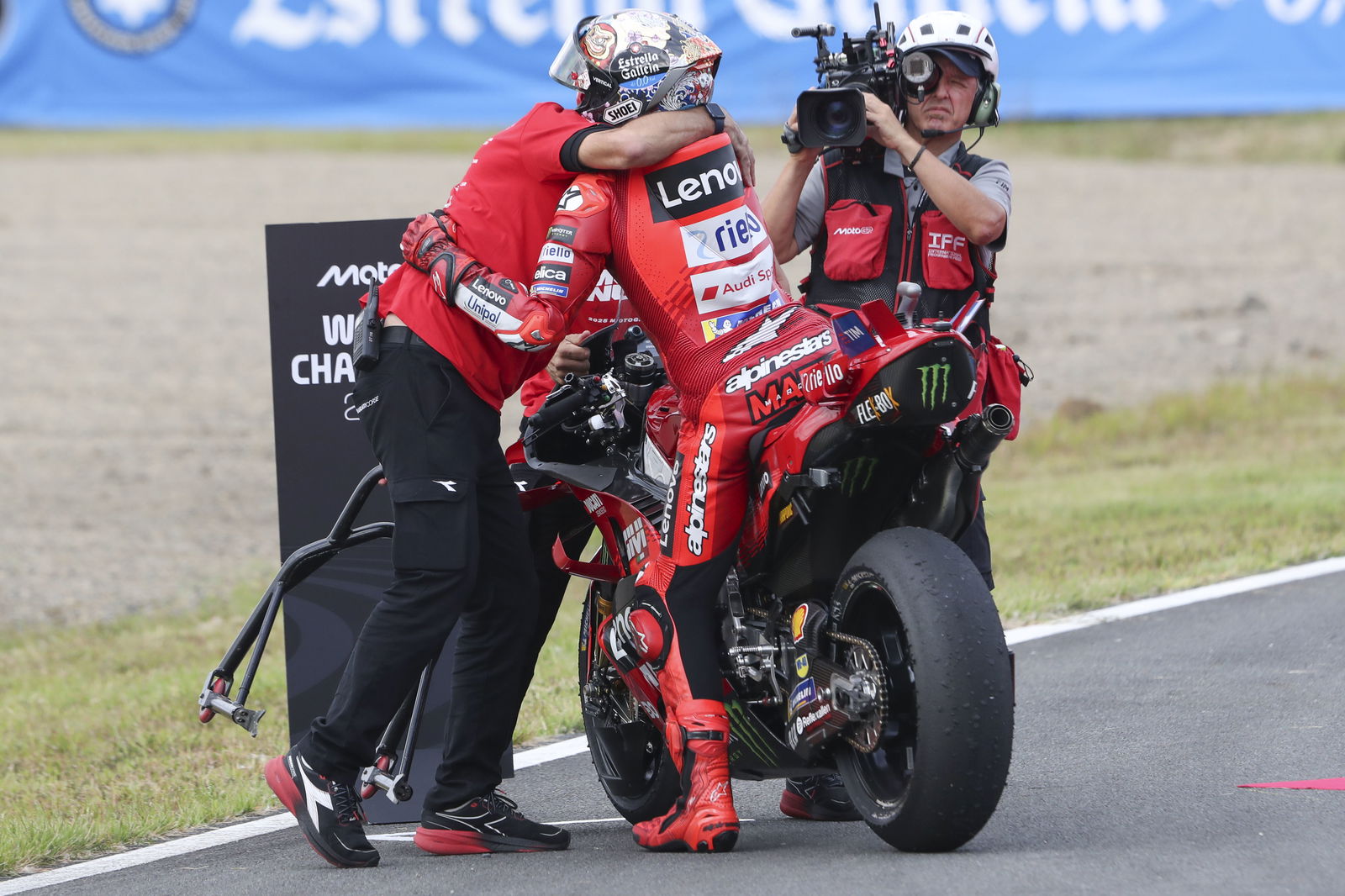
He’s been open over the years to a point about the struggles he faced coming back from injury. The true darkness of those times, however, will probably remain hidden. But it’s also a fact that athletes don’t go through something like that and get back to their prime, let alone to a new level, very often. No one in MotoGP history has gone as long as Marquez has between titles. That wouldn’t have been possible without the determination that Marquez has shown over the last five years to make it so.
Sport is full of big comebacks, but few really do come close. In motorsport terms, perhaps only Mick Doohan nearly losing his leg after a crash at Assen in 1992 and then coming back to become a five-time MotoGP champion, or Niki Lauda returning in 1976 after a fiery crash at the Nurburgring to win two more Formula 1 world titles compare.
Neither, though, were already considered the greatest of their generation - nor as late into their careers - at the time of those injuries. Marquez had come off the back of one of the greatest seasons ever in 2019 and was on course for an almighty charge from the back of the pack to the win in the 2020 Spanish Grand Prix after an early off when he suffered that fateful crash.
Title number seven in MotoGP really should have come five years ago. In 2025, at 32 years old, the record books should look completely different to how they are now. Despite this, he is once more back on course to rewrite history.
Marc Marquez is MotoGP’s greatest of all time
Comparing eras is always a flawed game, because there is never enough consistency to accurately relate one great to the next. But that will never stop the debate.
For most of the last two decades, MotoGP’s greatest of all time title has belonged to Valentino Rossi. The Italian won seven world titles between 2001 and 2009, doing so on 500cc, 990cc and 800cc machinery, riding for Honda and then Yamaha. His switch to Yamaha came with immense risk, as he traded the undisputed king machine of the 990cc era for a bike that didn’t even win a race in 2003.
Rossi went from being a Honda great to a Yamaha great in the blink of an eye and saw off stiff opposition from up-and-comers, all the while he raised the profile of MotoGP to new heights. But Rossi wouldn’t win a title again after 2009. An ill-fated move to Ducati delivered three podiums along with his lucrative paycheque and forced him to return a Yamaha camp firmly in the possession of Jorge Lorenzo.
Rossi came close to the world title in 2015 but fluffed it at the finish when he sabotaged himself with paranoia over conspiracies about Marquez aiding Lorenzo. He took his last win in 2017 and his last podium in 2020 before retiring at the end of 2021 amid declining results.
Still, nine world titles and 115 grand prix victories (89 of those in MotoGP) is an undeniable statistic. Only Giacomo Agostini has more, and his status within the GOAT debate is very much overshadowed by his era of dominance in the 1960s and early 1970s coming at a time when manufacturer competition was weak.
Marquez now equals Rossi’s titles in numbers but also in the same pathway: 125cc crown, then Moto2, then seven in the premier class. He’s also done so for two different marques in Honda and Ducati, the latter something Rossi wasn’t able to do (though without his 2011/2012 nadir prompting some soul searching in Bologna, Marquez’s 2025 triumph may never have come to pass). Marquez now has a century of grand prix wins, 74 in the top class as of Motegi.
Read more: From last chance to title glory: Timeline of Marc Marquez’s 2025 MotoGP championship
But Marquez won the title in his rookie year against a formidable Jorge Lorenzo. And through most of his Honda years, he did not have the best bike. Arguably, in 2019, the RC213V was at its most difficult; the fact only one other Honda managed a few podiums that year, while a multiple champion in Lorenzo struggled to crack the top 10 backs that up.
Even in 2025, without Marquez Ducati would be facing a much tougher onslaught from its rivals as the GP25 - while still strong - hasn’t been the brand’s best offering. His speed has been frightening, but it’s his adaptability that he really allowed him to shine this season.
But to get to where he is now, at the conclusion of the 2025 Japanese Grand Prix, given everything he has been through in the last five years and with the level he is operating at well over 10 years into his premier class career is unparalleled.
And there is no suggestion that Marquez is done, either. Ahead of the Motegi round, he said it didn’t matter how many world titles he has officially recognised in response to a question about the championship taking the spotlight off smaller categories. “The most important thing,” he said, “is to keep increasing those numbers. It doesn’t matter how.”
Records will continue to tumble if things carry on as they are. Yet, that hasn’t ever seemed this year as something Marquez has really cared about. He quit Honda two years ago to take a salary-less ride at Gresini to rediscover his enjoyment for racing. He’s done that, perhaps more than he ever thought possible…
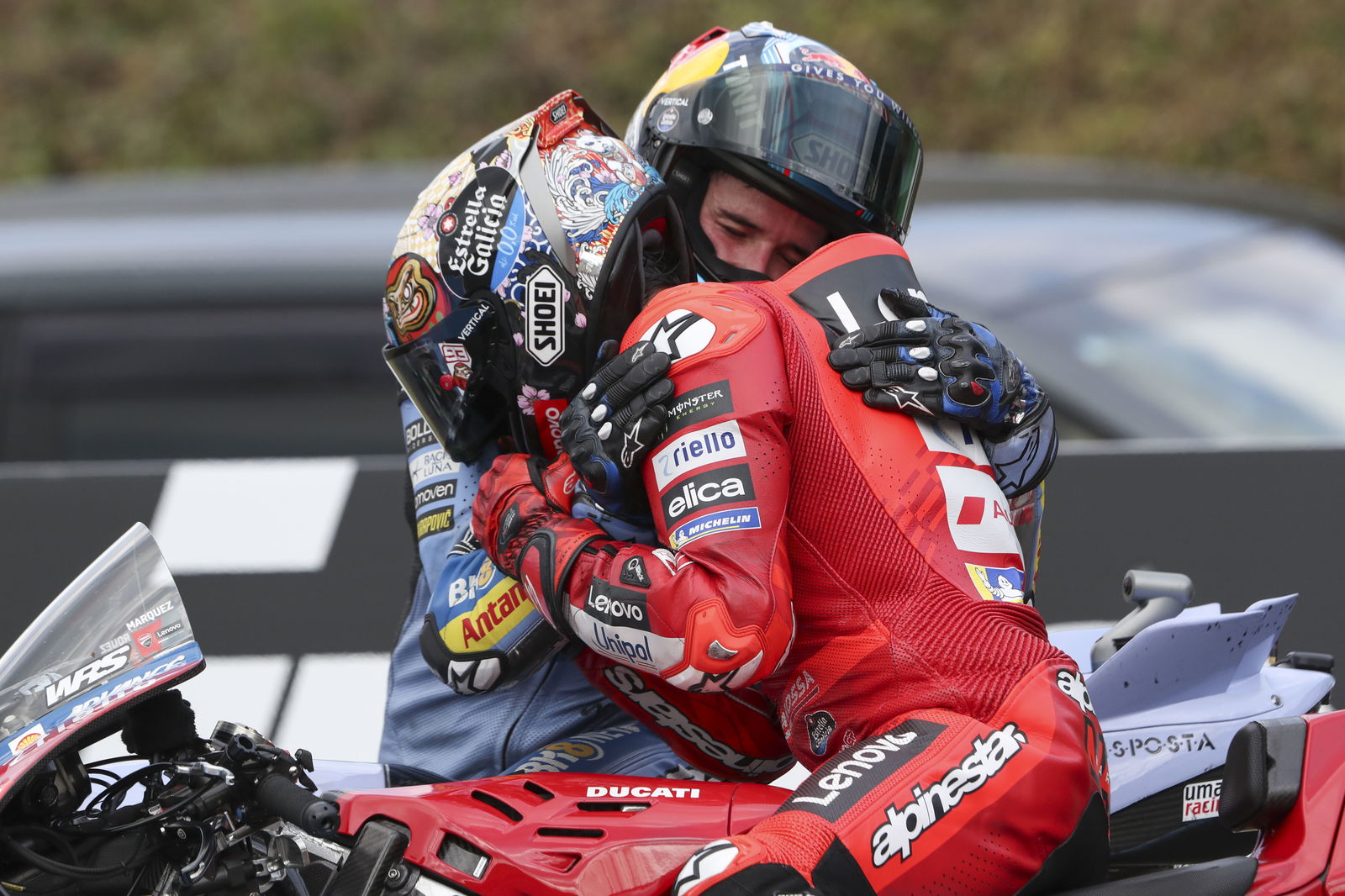
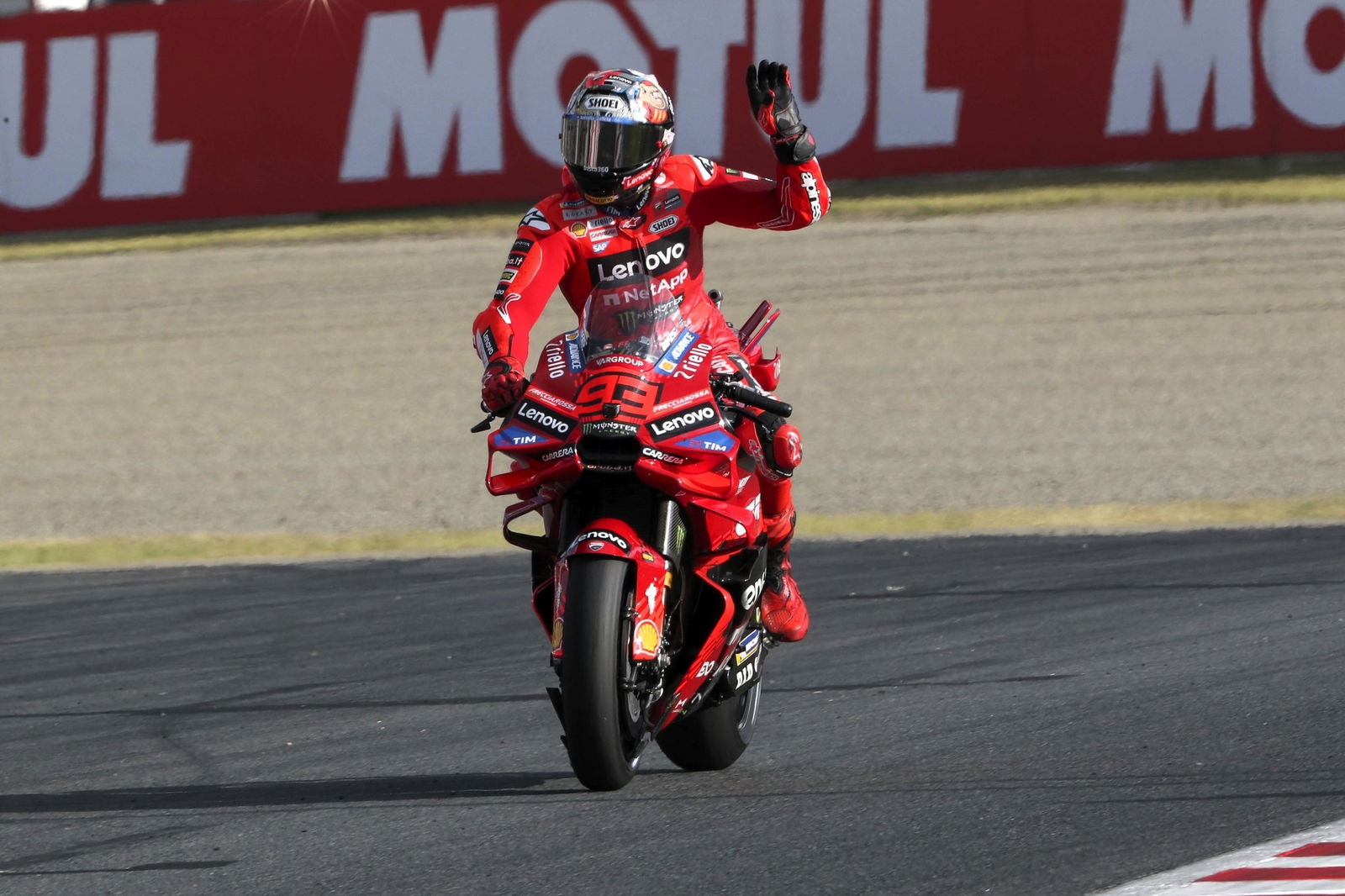
.jpg)



